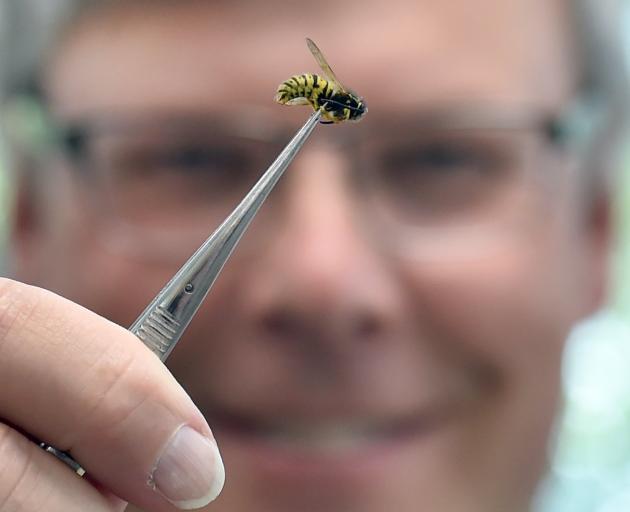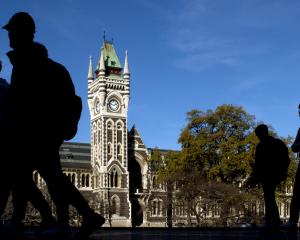
Genomics Aotearoa co-director and Otago biochemist and geneticist Prof Peter Dearden said the $11 million Ministry of Business, Innovation and Employment-funded research project had the potential to accidentally create organisms such as Africanised bees - a hybrid of the western honey bee and the East African lowland honey bee, which is aggressive and has been known to kill humans, horses and other animals.
So the highly secure containment lab was necessary.
"We don’t know what the effects of our genetic modifications are going to be, and so that is why everything is being done in containment, in the safest possible way so that they can’t get out of containment.
"We control who goes in, what is done, and what comes out.
"We’ve been doing this for 25 years now and we’ve never had any releases.
"We want to know if these technologies work or not, and if we do make wasps that are worse or more aggressive, then obviously that’s not going to work as a pest control.
"So we’re doing it in the lab, very carefully, so there’s no chance of these things being released."
Prof Dearden said New Zealand had many different species of wasp, but the ones the lab was looking to eradicate were introduced species such as the common, German and paper wasps.
"Dunedin doesn’t have paper wasps at the moment but they are heading south and they reached Oamaru last year, so they are coming.
"And we’re expecting murder hornets to start turning up in the country in the next two years."
He said the lab aimed to make a "transgenic organism", a wasp that had been genetically modified with a flaw that could spread throughout colonies, destroying them from the inside.
"We are using this as a test case for all New Zealand pests, a prototype for what can be done in the most ethical way, the safest way, and the way that follows the science.
"What we want is to develop research to make this firstly, scientifically possible; and secondly, offer a blueprint for how it can be done, if and when New Zealand decides we want to do it."
Prof Dearden said New Zealand had some of the highest densities of wasps in the world, and because they were not in their native environment of Europe, they did not have natural predators or colder climates to keep their populations in check.
In New Zealand, they kept multiplying and it was exacerbated by climate change.
The numbers equated to massive economic and environmental damage, he said.
In 2015, wasps were estimated to cost the economy $133 million a year.
"For the honey industry, worth $425m to the economy and $4 billion per year in pollination in 2021, wasps destroy 12% of bee populations annually.
"The economic benefits of removing invasive wasps would not only save over $100m in control costs a year, that’s insecticides and other nasties in the environment, but also trigger an estimated $62m a year increase in the pastoral sector and $58m for the honey industry.
"That is huge for New Zealand", Prof Dearden said.
Prof Dearden said he was "agnostic" about the release of a developed wasp.
"If gene-drives are shown to be effective and safe, that is one thing.
"If gene-drives are shown to be neither safe, nor effective, then the project will definitively demonstrate this, allowing us to move on to other solutions."
The project will run until September 2028.











